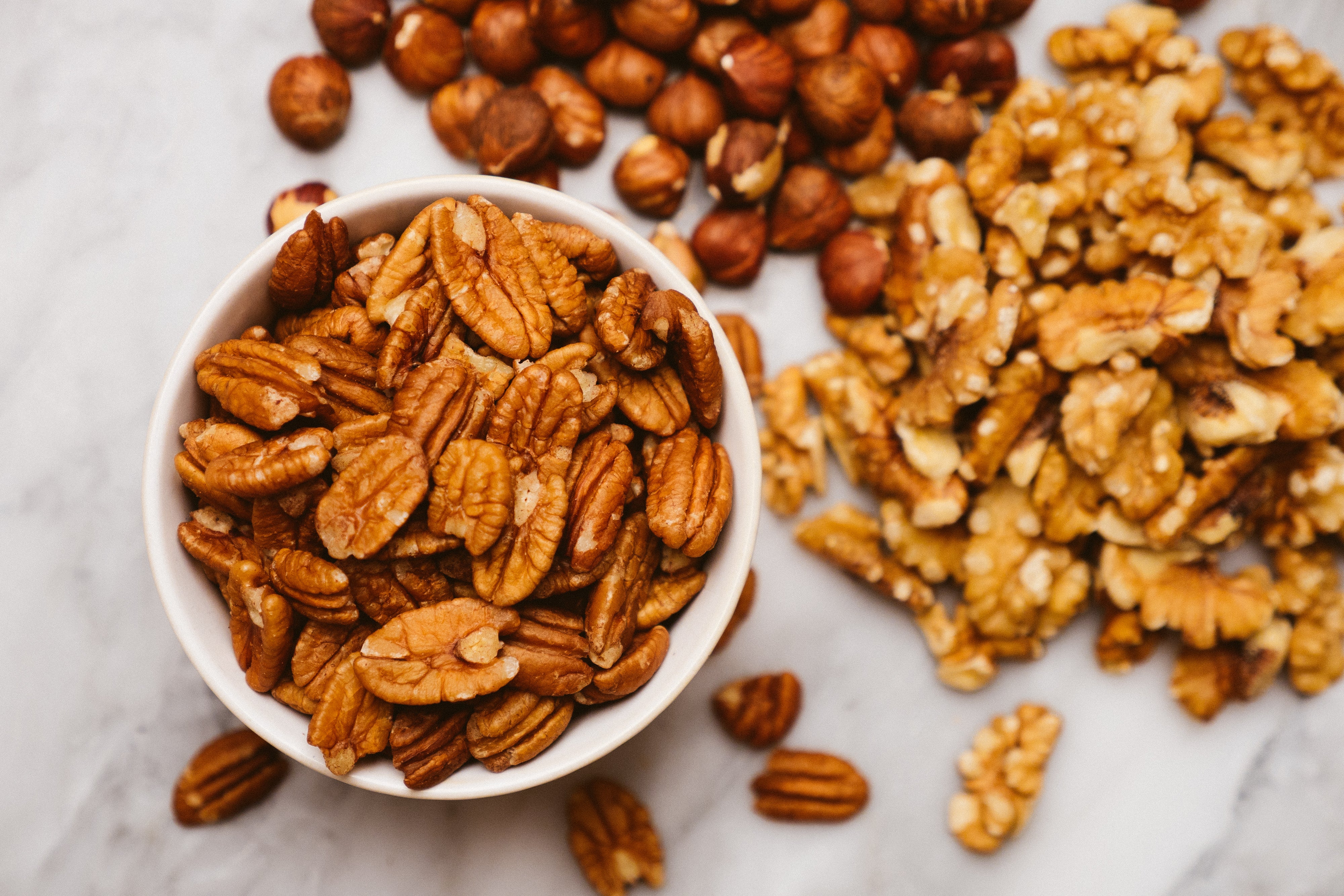How to Sprout Nuts and Seeds

For thousands of years, traditional cultures have been soaking different foods to improve digestibility. We now know soaking nuts and seeds releases phytic acid bonds and activates enzymatic activity so we can digest the nutrients more easily. To learn more about sprouting, click here. We do not necessarily soak them to grow an actual sprout or root, we soak to deactivate naturally occurring enzyme inhibitors and increase digestibility and nutrition. For more on the terminology of sprouting and soaking click here.
How to sprout nuts and seeds:
Put nuts or seeds (flax, chia and hemp seeds should not be sprouted using this method) in a large bowl and cover with water by at least 4 centimetres. Each cup of nuts needs approximately 1/2 tsp salt which will help to neutralize the phytates in the nuts. Stir very well to combine. Allow to sit for anywhere from 4 to 24 hours in the fridge (overnight is fine). Different nuts/seeds need different soaking times. See this article for soaking times for different nuts and seeds.
Drain the water and rinse well. If you have a dehydrator, put the nuts or seeds in the dehydrator at 105 F. Start checking after 35 hours, but it can take up to 60 hours (seeds dry quicker). If you are using an oven instead of a dehydrator, set the oven to the lowest temperature and let them dry out, depending on your oven this may be quite quick, check them often. You can tell they are ready when they are crunchy. If they are soft, they are not yet dehydrated and need to dry longer.
Keep sprouted nuts and seeds refrigerated.
Depending on your water source, it is advisable to use filtered water for the soaking and rinsing stages. That's what we do at NUT•HUT. We use antarctic sea salt from Gathering Place Trading. It's the lowest in microplastics found in many salts in the ocean, and heavy metals which may be found in land-based salts.
Great nuts and seeds to sprout? almonds, hazelnuts, pecans, pumpkin seeds, sunflower seeds and walnuts